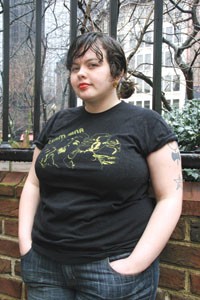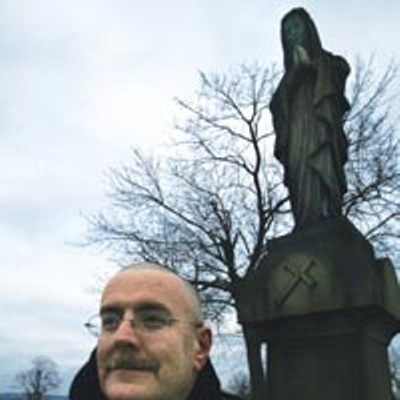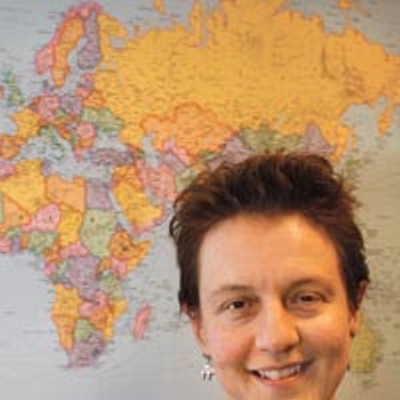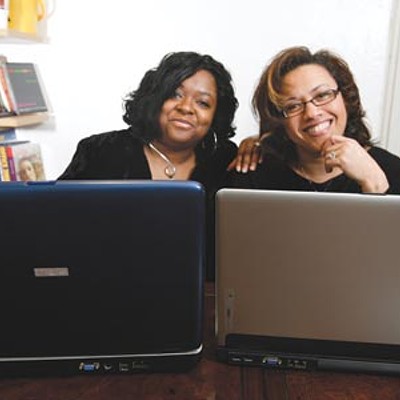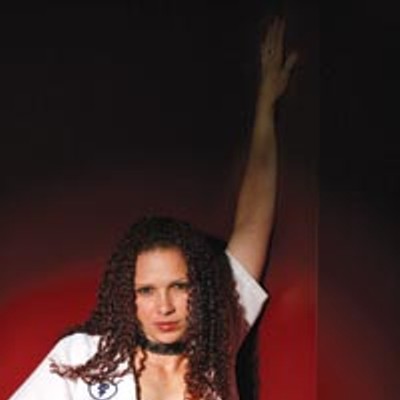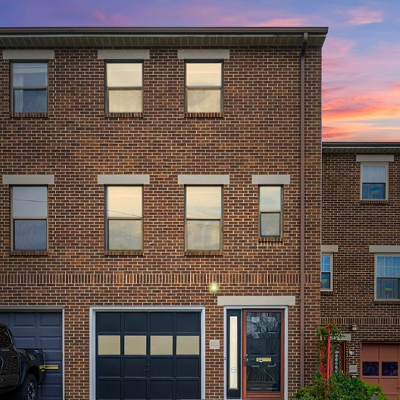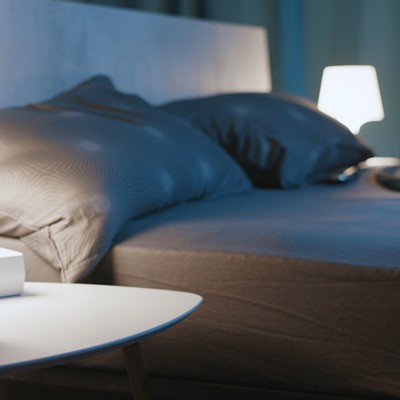Cole Lea, 25, is an environmental organizer by day, spoken-word poet by night ... and a full-time feminist dyke. Lea, of the West End, is a force to be reckoned with at shows and open mics all over town.
Has "feminist" become a dirty word?
For some people, I think it has. I think that's a shame. People don't identify with the word. People of color don't feel comfortable with the word "feminist" because it's so white. In the '60s and early '70s, NOW [National Organization for Women] really didn't care for lesbians. Betty Freidan called us the "lavender menace." People, when they want to shut women up, they call them lesbians.
You marched in last year's PrideFest Parade and said it was about lesbians taking space of their own. What role do gay men play in supporting your agenda?
Gay men have more of a vested interest in capitalism and patriarchy. We do have a lot of oppression in common, but we do have separate issues that are valid. I identify with queer politics and call myself a dyke. I think there have to be separate organizations, not that we don't share the same issues. ... I'm certainly what you'd call a radical feminist. I certainly don't represent the interests of all lesbians.
How is Pittsburgh for young queer women?
I think about four years ago it was really discouraging. Now, it's great. There are two different production companies putting on dance parties. Myself and some people I know are putting on shows. There used to be a time when queer performances at queer events would be like a few times a year. Now, it's like twice a month. It's people doing the work and not waiting for someone else to do it. That's the attitude of a lot of young people in Pittsburgh: "Wait a minute, why don't I just do it? I probably should!" When I've brought in out-of-town performers, they're like, "Wow, there's nothing like this in my town." People are excited about how friendly Pittsburghers are.
What kinds of stuff are you working on now?
Most of my material is lesbian feminist -- it's all political. I do a lot of anti-war material, calling people to action. I think I have a unique perspective of being a lesbian: I'm already on the outside so I'm not afraid. I definitely talk about the way we all in our daily lives are complicit in war and capitalism.
One of the pieces I do is about electoral politics and how people invest so much in electoral politics. That's not enough to do. You really have to hold people accountable. It's not just about creating political leaders; it's also about creating community groups and organizing to keep them in check. People would literally not have food [without community groups] because our government isn't doing a good job caring for people.
I'm also talking about toxic chemicals, the beauty standard. I don't attack people for feeling a certain way, it's just our culture. I attack the corporations for putting the chemicals in. I don't think people know that beauty products are toxic -- people aren't really aware that shampoo has formaldehyde, lipstick has lead. Most people do wear deodorant, or tampons that have dioxin.
How is your work changing?
I've been getting more personal -- "Let me talk about me a little!" It comes from being more mature as a performer. Now I have people say, "I know how that is to go to high school where you're the only gay person." It was really strange to go to a place where it wasn't OK to be me. I definitely got beat up in high school. I ended up graduating a year early. I was really bored with what they were teaching.
I'm talking about stuff that's more vulnerable. I don't always come out on top. I talk about being sexually abused as a child, rationalizing it as punishment and gaining control. Survivors support each other; we can recognize each other without talking. It's kind of like how lesbians find each other -- it's not a look, it's a way people hold themselves. You can recognize aspects of coping. Survivors of sexual abuse, physical abuse, Iraq vets -- a lot of symptoms are similar. They're all dehumanizing experiences.

